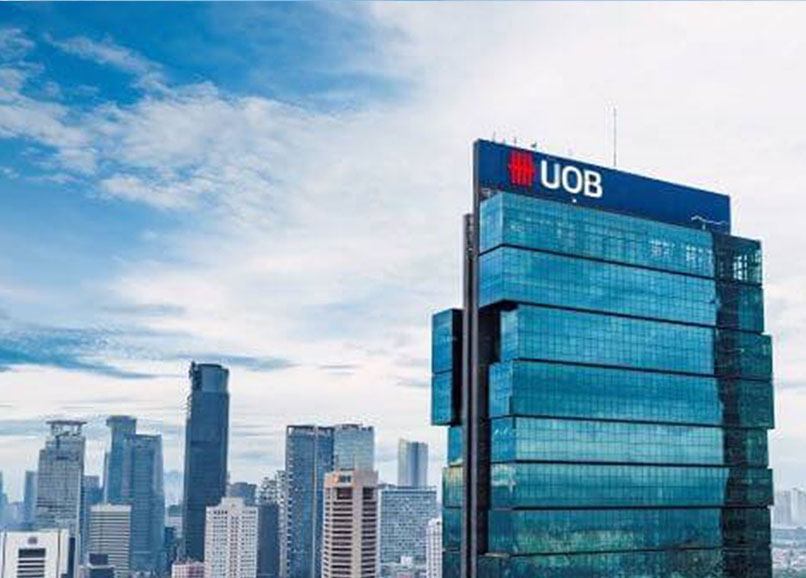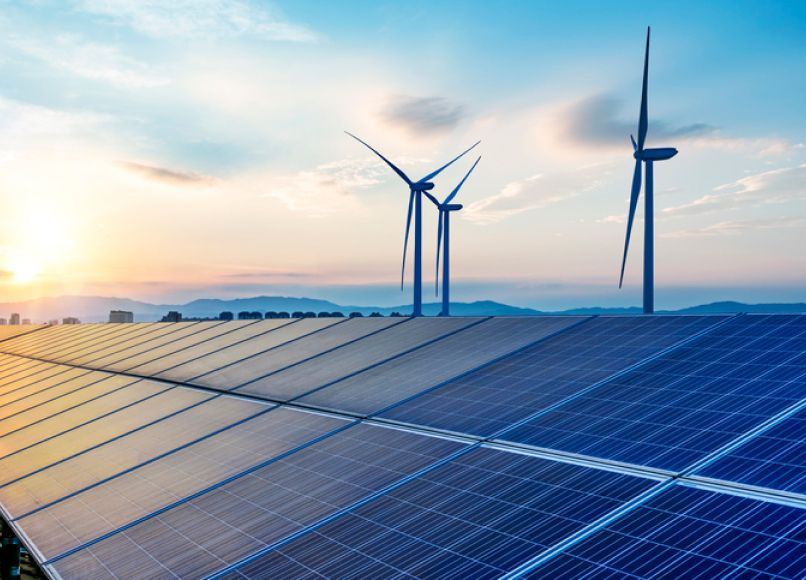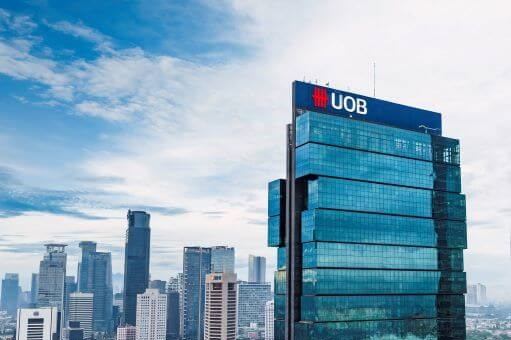
Direct Environmental Impact
UOBI strives to preserve the earth because it recognises that it is a shared place for people to live and that it has given us many natural resources that we use to improve our standards of life. Within our capacity and reach, we are committed to implement policies and promote an environmentally-friendly culture to minimise our direct environmental impact.
Consumption of resources such as electricity, water, fuel, paper, plastic and other supplies is our primary direct environmental impact. On the other hand, the environment is also impacted by waste produced from our operational activities. Therefore, we are committed to implement policies on energy efficiency, minimising usage of plastic and paper and implementing waste management to reduce the amount of waste sent to the landfill.
Energy and Water Use
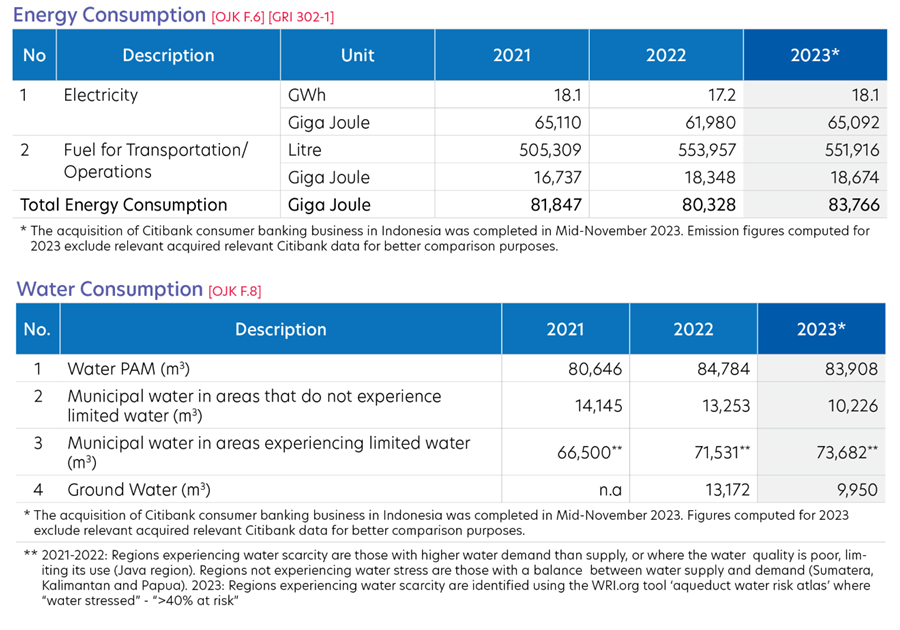
Greenhouse Gas Emissions

Use of Materials
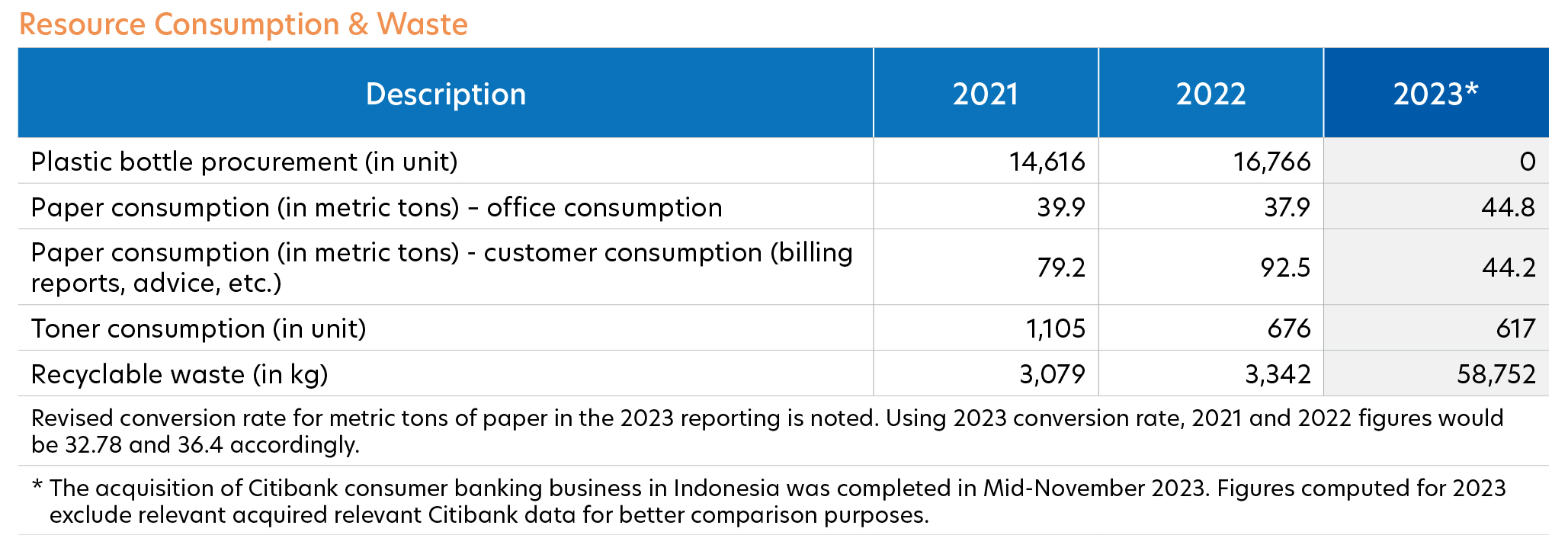
Our Policy and Commitments
Energy and Resources Management
In terms of energy and resources management, we are making an effort to actively adapt to the most recent and effective technology in order to upgrade our current system and reduce our direct environmental impact.
Biodiversity
UOBI understands the importance of environmental ecosystem conservation. Currently, our operating activities and the assets we use, lease or manage by UOBI are not located in or around areas that are protected or have high biodiversity. Therefore, the high biodiversity wilderness areas are not negatively impacted by our activities.
Use of Materials
Continuing the positive momentum of hybrid-working arrangement during the pandemic that have changed the work culture from manual to digital, we are committed to progressively reduce the amount of paper and toner we use in our operations and switching to a more environmentally-friendly printing paper. We also encourage employees to bring their own tumblers for personal use and offer drinking glasses for customers in an effort to reduce the amount of single-use plastic produced by water bottles.
In 2022, we reduced 26 per cent paper and 69 per cent toner usage compared to 2019 as our baseline. While for single plastic usage, we reduced 92 per cent of purchased plastic water bottled compared to 2019. After the government loosened COVID-19 restrictions in 2022, the high occupancy in offices led to a small rise in paper and plastic usage in 2022 compared to 2021.
Waste Management
As part of our resolve to lessen environmental pollution by reducing the amount of inorganic waste sent to landfills, we have collaborated with third parties to recycle inorganic waste since 2019.
In 2022, 3.3 tonnes or six per cent of total waste generated at the head office was recycled. In addition, we educate and train UOBI employees on how to recycle fabric scraps and unused clothing into a usable product in order to reduce the amount of discarded materials and fabric waste sent to landfills, reduce production and use of new or raw materials that can have an impact on the greenhouse gas emissions.
Review of Policy and Performance Effectiveness
We believe that our internal processes have been effectively implementing our environmental conservation policies. In order to deliver positive impact to the environment, we will continue to deepen our presence to address the environmental risks and effects of our operations in a responsible manner.
In general, we aim to minimise our environmental impact through:
- maintain operational carbon neutrality for our scope 1, scope 2 and scope 3 emissions;
- reduce electricity usage;
- reduce plastic, paper and toner usage; and
- reduce the amount of inorganic waste to landfill.


